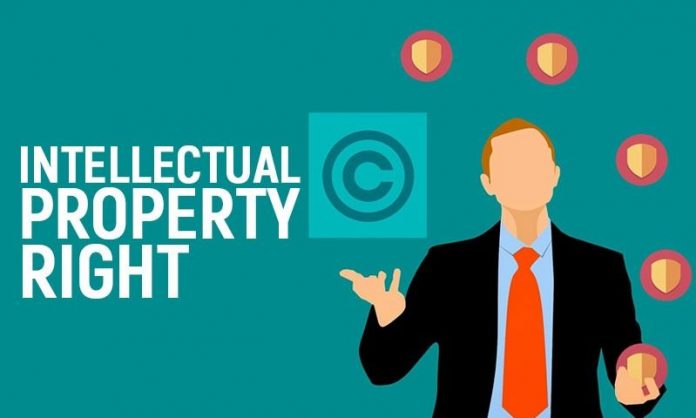This article has been written by Oishika Banerji of Amity Law School, Kolkata. This article provides a detailed analysis of the Draft Intellectual Property Rights Division Rules, 2021.
Table of Contents
Introduction
After the Tribunals Reforms (Rationalisation and Conditions of Service) Ordinance, 2021 (currently known as Tribunal Reforms Act, 2021 (“TRA 2021”)) was passed by the President of India, which resulted in the liquidation of numerous boards and appellate tribunals that operated under separate laws controlling intellectual property rights (IPR), the Delhi High Court established the Intellectual Property Division (IPD) to deal with all cases pertaining to IPR. Exercising its power conferred by Section 7 of the Delhi High Court Act, 1966, Section 129 of the Code of Civil Procedure, 1908 and by various Intellectual Property statutes as amended by the TRA 2021, the Delhi High Court made the Intellectual Property Rights Division Rules, 2021, which will be governing matters listed under the IPD. The Draft Delhi High Court Intellectual Property Rights Division Rules, 2021, were submitted to the Hon’ble Chief Justice Dhirubhai Naranbhai Patel by a committee composed of Justices Prathiba M Singh and Sanjeev Narula. The Rules were circulated on October 8, 2021, in order to solicit feedback from the Bar. This article provides a detailed analysis of the Draft Intellectual Property Rights Division Rules, 2021.
The roots
The dissolution of the Intellectual Property Appellate Board (IPAB) and the emergence of the Intellectual Property Division (IPD) by the Delhi High Court has a long story to narrate.
- The Tribunals Reforms (Rationalisation and Conditions of Service) Bill, 2021 was introduced in Lok Sabha in February 2021. As the Bill was pending at the end of the summer session, an Ordinance with similar provisions was promulgated on 4th April 2021 by the name of Tribunals Reforms (Rationalisation and Conditions of Service) Ordinance, 2021.
- The Tribunals Reforms (Rationalisation and Conditions of Service) Bill, 2021, proposed that some current appellate bodies be dissolved and their powers be transferred to other existing judicial bodies. One among the dissolved appellate bodies was the Intellectual Property Appellate Board (IPAB). It also suggested including provisions in the Act itself regarding the makeup of selection committees and terms of tenure.
- The Tribunals Reforms (Rationalisation and Conditions of Service) Ordinance, 2021 was challenged in the Supreme Court of India over its lack of compliance with past Supreme Court judgements on Tribunals, in the landmark case of Madras Bar Association vs Union of India (2021). In July 2021, the Court struck down provisions related to the four-year tenure and the minimum age requirement of 50 years for members of tribunals.
- All cases and appeals that were pending before the IPAB got transferred to their respective high courts and the copyright matters to the commercial courts. IP-related appeals are now being filed before the appropriate high courts or commercial courts having competent jurisdiction to try the case.
- On 6th July 2021, the Delhi High Court issued a press release announcing the creation of an Intellectual Property Division in the Delhi High Court for the purpose of handling multiplicity of proceedings and avoiding the possibilities of any kind of confusion that may arise with respect to similar intellectual properties.
- Further, the Delhi High Court established the Intellectual Property Division on 7th July 2021 with the intent that the new Division will be solely dedicated to handling cases related to intellectual property rights.
The structure
The reason behind the formation of the Draft Intellectual Property Rights Division Rules, 2021 has been laid down under the Preamble of the aforementioned statute. The Draft Intellectual Property Rights Division Rules, 2021 has a framework of thirty-one Rules dealing with different procedures and definitions that is to be applied while dealing with cases under the IPD. The General Clause under Rule 24 clarifies that the procedures which are not specifically provided for in these Rules shall, in general, be governed by the Civil Procedure Code, 1908 as amended by the Commercial Courts Act, 2015 and the Delhi High Court (Original Side) Rules, 2018.
Rule 2(a) read with Rule 2(i) of the Draft Intellectual Property Rights Division Rules 2021 specifies the meaning of the term ‘intellectual property rights’ and the statutes that are applicable to the Rules. They are;
- The Copyright Act, 1957;
- The Designs Act, 2000;
- The Geographical Indications of Goods (Registration and Protection) Act, 1999;
- The Patents Act, 1970;
- The Protection of Plant Varieties and Farmers’ Rights Act, 2001;
- The Semiconductor Integrated Circuits Layout- Design Act 2000;
- The Trade Marks Act, 1999.
What is interesting to note in Rule 2(i) is that the provision along rights pertaining to different expressed intellectual property statutes and common law recognizes the rights pertaining to data protection, data exclusivity, and related matters. The explanation attached to this provision specifies that cases involving the Information Technology Act of 2000, which deal with the rights and liabilities of intermediaries, online marketplaces, and e-commerce platforms, and which involve “issues relating to any of the aforementioned rights, shall be deemed to be within the purview of intellectual property rights.”
Rule 2(l) of the Division Rules 2021 states that IPR matters or cases or proceedings or disputes shall include all original proceedings, appellate and other proceedings related to IPRs as defined in Rule 2(i). Further, it is Rule 4 which discusses jurisdiction under the Division Rules 2021 thereby providing that every IPR matter or case or proceeding or dispute filed before the Intellectual Property Office (IPO) shall be heard and adjudicated by a Single Judge of the IPO.
While Rule 6 of the Division Rules 2021 lays down the procedure for appeals to the IPD, Rule 7 provides the procedure to be followed while filing original civil petitions. Rule 8 and Rule 9 deal with the procedure for civil writ petitions and civil miscellaneous main petitions respectively. Rules 10 to 14 also encircles the necessary procedures to be abided by while addressing a suit to the IPD, namely:
- Procedure for Regular First Appeal (Rule 10);
- Procedure for First Appeal from Order (Rule 11);
- Procedure for Civil Revision Petition (Rule 12);
- Procedure for CM (Mains), FAOs, RFAs, CRPs (Rule 13);
- Procedure for Suits (Rule 14).
The Draft Intellectual Property Rights Division Rules, 2021 lays down provisions for summary adjudication as well under Rules 21 and 22 on principles akin to those contained in Order XIIIA, Code of Civil Procedure, 1908 as applicable to commercial suits under the Commercial Courts Act, 2015.
With the intent of avoiding unnecessary delays in the disposal of suits, Delhi High Court has made sure that strict guidelines of written submissions and timelines for oral submissions be followed while drafting the Division Rules, 2021. Rule 28 of the 2021 Division Rules deals with the same.
The future
When the transferred cases from IPAB are combined with the current backlog of IP matters in the Delhi High Court, the burden is certain to skyrocket. According to the news announcement by the Hon’ble High Court announcing the IPD’s formation, the IPAB had around 3000 cases outstanding, which would now be moved to the High Courts. According to the most recent data on commercial cases in the Delhi High Court, there are around 2500 commercial civil claims pending. If we include writ petitions, the number of cases before the Delhi High Court’s Commercial Division is projected to quadruple.
Furthermore, COVID-19 led to widespread case de-prioritization, and the IPAB was disbanded without any advice on case management, delivery of papers, filing of pleadings, statutory deadlines, and so on. These problems must be included in the IPD Rules, as well as progressive methods to resolve them. They must establish shorter and more stringent deadlines for filings and oral arguments. In contrast to typical civil cases, summary processes should be the rule, with oral evidence recording (which greatly lengthens a case) being the exception.
Conclusion
The establishment of the Intellectual Property Division (IPD) in the High Court of Delhi is a significant step in the scenario of intellectual property rights with respect to India, and it is in accordance with international standards. The benefit of this strategy is that the expert benches are part of the general structure of normal courts, thus no changes to Indian law are required. However, in order for this to operate, the following essentials must be complied with:
- Adequate qualifying requirements for such judges must be developed.
- Second, comprehensive IP training for the judges is required.
- Finally, it must be assured that these judges remain on the IP bench for a long time, rather than being rotated every 2-3 years.
IP Divisions or IP Courts that only deal with IPR issues already exist in the United Kingdom, Japan, Malaysia, Thailand, China, and other countries. The establishment of an IPD with complete rules controlling IPR disputes is a significant step forward in the efficient resolution of IPR-related issues. The other High Courts should hopefully follow suit and create IPDs. This will be especially useful for courts that deal with a large number of IP matters.
References
- https://ssrana.in/articles/delhi-high-court-proposes-intellectual-property-rights-divisions-rules-2021/.
- https://www.mondaq.com/india/trademark/1122792/delhi-high-court-proposes-intellectual-property-rights-divisions-rules-2021.
- https://images.assettype.com/barandbench/2021-10/a12dcd16-9146-4bd4-9f41-2bf64ec5485b/IPD_Note.pdf.
- https://spicyip.com/2021/10/delhi-high-court-extends-the-deadline-to-submit-comments-on-delhi-high-court-intellectual-property-rights-division-rules-2021.html.
LawSikho has created a telegram group for exchanging legal knowledge, referrals and various opportunities. You can click on this link and join:
https://t.me/joinchat/L9vr7LmS9pJjYTQ9
Follow us on Instagram and subscribe to our YouTube channel for more amazing legal content.
 Serato DJ Crack 2025Serato DJ PRO Crack
Serato DJ Crack 2025Serato DJ PRO Crack










 Allow notifications
Allow notifications


